- Home
- Robin Cook
Viral Page 36
Viral Read online
Page 36
A quick check of Heather’s body with the telescopic sight confirmed no movement whatsoever. Knowing he had no time to lose, Brian pulled the rifle back from beneath the Adirondack chair and pocketed the empty casing. He quickly scampered over to the ladder and in a repeat of how he’d climbed up, he descended. A moment later he handed off the rifle to Jeanne.
“How did it go?” she asked in a forceful whisper.
He flashed another thumbs-up as he boarded the Zodiac. Quickly he started the outboard engine, put the boat in gear, and steered out from under the deck. After going some fifty feet, both he and Jeanne looked back. The horse and the dogs could be seen at the far end of the paddock, where the horse had stopped to eat the grass. Heather Williams in her tattersall vest and white breeches was still in the exact position she’d been when she’d tumbled to the ground.
It was Jeanne’s turn to give Brian a thumbs-up as he increased the speed to a no-wake fast walk. It wasn’t until they were a good three or four hundred yards away that Brian slowed even more so they could talk without shouting. Several boats passed them, heading into Manhasset Bay from the Long Island Sound, one with a water skier.
“It went perfectly, without a hitch,” he assured her. He looked back yet again to the Williams mansion, this time using binoculars. The scene hadn’t changed. The horse and dogs were still at the far end of the paddock, and Heather Williams’s body was at the near end. It still had not been discovered, although it was only a matter of time. “I’ve never done anything like that. It was so quick, and so different from the messy shootings I’ve been involved with in the line of duty. I don’t know how to feel, except relieved that one nasty, greedy narcissist is gone.”
“Which is a tribute to the love you had for your wife and child,” Jeanne said. “I exhaled, too, when I heard the gun, which, by the way, I barely heard.”
“That’s thanks to the suppressor,” Brian said. “It definitely bought us some needed time.”
“I suppose I shouldn’t be saying this,” Jeanne said. “But it’s rewarding that so far everything is going so well. The world is already a better place without her.”
“It’s thanks to our careful planning. One down and one to go. Let’s hope the Charles Kelley portion goes as smoothly. I’d really like to avoid having to do a break-in. With the sniper rifle there are infinitely fewer chances of complications and collateral damage.”
Following her suggestion, they went back to using the fishing rods by putting them in holders mounted in the stern, pretending they were trolling as they slowly motored across Manhasset Bay on their way to Charles Kelley’s. They were not in a hurry now that they were at least a half mile away from Heather Williams’s and with a significant number of other boaters in the area, taking advantage of the beautiful weather. They also preferred not to arrive at Kelley’s mansion too soon, as he wouldn’t appear on his outdoor shower balcony until it was near sunset or soon thereafter. At that moment it was just a little after six and almost a full hour before they needed to be in position.
“Are your parents excited about your homecoming?” Brian asked, eager for conversation to avoid any nerves setting in. He knew that Jeanne had only recently informed her parents, in case a glitch in the planning process made it necessary to put off the operation.
“You have no idea,” she said. “They’re ecstatic, figuring I was a lost cause. They are already busy setting up that farmhouse I mentioned.”
“When will you tell them about me?” Brian asked. He’d spent his life constantly and comfortably ensconced in various groups like athletic teams, which was part of the reason he’d joined the NYPD originally right out of college. It was going to take time to adjust to feeling both rootless, solitary, and totally dependent on others.
“As the saying goes, ‘we’ll cross that bridge when we come to it,’ ” Jeanne answered. “I’m not at all concerned.”
When they were a hundred yards or so off of Charles Kelley’s pier, Brian cut the outboard engine and again tossed out the anchor. This side of the bay was shallower, and the anchor immediately took hold. With fishing poles in hand again, they passed the binoculars back and forth.
“It’s encouraging to see he’s humiliating his driver/bodyguard again,” Jeanne commented when it was her turn to survey the scene.
“I agree. It means he’s following his normal routine. Fingers crossed that he keeps it up, especially by taking his nightly outdoor shower.”
“I’m not worried,” she said.
“Lucky you,” Brian responded teasingly.
At a little after seven, they made their move. Following the successful playbook they’d used at Heather Williams’s, they paddled in under the end of Charles Kelley’s pier, positioned the Zodiac for a fast exit if necessary, and Brian used the ladder to get up to the deck. He then entered the cabana, which afforded considerably more concealment than the group of Adirondack chairs on Heather’s pier. Conveniently the cabana had a window-like opening facing inland with louvered shutters and a table that Brian turned lengthwise to serve as a perfect placement for the Remington on its bipod. Cracking open one of the shutters while sitting in a chair, he sighted through the telescopic sight. The waterside view of the Spanish-themed house was par excellence, even better than he’d had at Heather Williams’s, which had proven to be so efficacious.
The problem, however, was that after waiting some time, there was no Charles Kelley in sight. Although he and his driver/bodyguard had long since stopped their basketball, Kelley had not appeared, even after the sun set. Just when Brian was beginning to despair and had begun reluctantly thinking about the timing of a break-in, which he assumed would have to be after full darkness, the light in the master bedroom flicked on.
Trying to be optimistic, Brian leaned his head against the cheek-rest and sighted through the scope. His view of the second-story outdoor shower couldn’t have been better, and he estimated that the distance was very similar to what it had been when he shot Heather Williams, namely a hundred yards or so. Using the bolt action, he put a shell into the firing chamber and slipped his index finger inside the trigger guard, hoping for the best.
Slowly the minutes ticked by, but still no Charles Kelley. Normally steady under stress, Brian could feel the trickle of perspiration on his forehead as well as his pulse significantly quicken. Still, with self-control, he kept his breathing slow and steady.
Then suddenly the Moorish arched door swung open, and Charles Kelley appeared towel in hand rather than over his shoulder. Even from a hundred-plus yards and sitting inside the cabana, Brian could hear the intermittent strains of some rock music emanating from within the house, causing Charles to bob and weave to the beat. With such erratic movement, Brian bided his time, watching through the scope as Charles turned on the shower and adjusted the temperature. Finally, when all was to his liking, Charles stepped into the enclosure, shut the door, and put his head directly under the torrent.
Since he was visible from mid-thorax up and facing away, it was a perfect setup for another brainstem shot. With careful precision, Brian placed the crosshairs directly at the base of the man’s skull, and hesitated for a moment, thinking of Emma and Juliette. The subsequent wave of emotions urged him to press against the trigger.
The rifle made the same thumping whoosh as it had when he’d shot Heather Williams. By force of habit and reflex, Brian used the bolt to eject the empty shell and load another bullet. But again, a second shot was not necessary. As with Heather, Charles instantly fell, disappearing from view behind the shower door. Brian could clearly see a large circular bloodstain centering on a sizable crater in the tiled wall. There was little doubt that the armor-piercing bullet had completely traversed Charles’s head to exit out the forehead.
He pocketed the rifle’s magazine and removed the bullet from the firing chamber. He took a deep breath before standing up and retracing his steps to the ladder. A moment later he
started down.
“Well, how did it go?” Jeanne questioned in a whisper, yet loud enough to be heard over the lapping of the water against the pier’s piling. She took the rifle so he could climb aboard the Zodiac.
“Again, it couldn’t have been better,” Brian managed. “They’re gone. It’s over. Emma, Juliette, and Riley and countless others have been avenged and maybe, just maybe, we’ve started the ball rolling to change a sick healthcare system.”
“That’s the hope,” Jeanne said. “Now I think we’d better get out of here.”
“Right you are,” Brian managed, starting the motor.
Five minutes later he gave the Zodiac’s engine full throttle and brought it up to planing speed as they rounded the tip of Kings Point and headed due west. A mile and a half ahead they could see the twinkling lights of City Island. Although the sun had long since set, the sky was still a light silver-gray, and Brian turned on the boat’s running lights even though they’d be back at Butler Marine well before total darkness.
With the sound of the outboard, speech was near impossible. Both Brian and Jeanne were isolated in their thoughts, but he didn’t mind, as it gave him time to recover. With the stiff sea breeze in his face, he felt a strong sense of peace despite having little idea what the next chapter of his life was to be.
EPILOGUE
October 18
Similar to what he had been doing for more than a month, Brian tried to imitate the ease with which Jeanne mounted her horse. As per usual, it didn’t quite work, as the horse moved just as he was throwing his leg over the animal’s back. Getting himself up off the ground and readying himself for another try, he was prepared to blame the horse if Jeanne said anything derogatory, but she didn’t. Although he didn’t fall on his next attempt, it was hardly an impressive mounting, and he could hear her giggle as he settled into the saddle.
Prepared on their white Camargue horses, they started off just after four p.m. on a lazy Sunday afternoon. Their goal was the Mediterranean coast, which lay about nine miles due south. This was to be their first visit to the beach since their arrival in Camargue five weeks earlier. It had been Jeanne’s idea to go for a seaside picnic as a change of scene. She’d been eager to show the coastline to him, as it had been one of her favorite destinations when she was a teenager.
The Camargue had turned out to be as interesting for Brian as Jeanne had suggested it would be. He had no idea such a wild, mostly uninhabited place existed in France where there were many more horses, cattle, and sheep than human beings. Those parts of northern France where he’d visited as a boy along with his siblings had every square inch taken up by old stone walls, carefully planted hedges, paved roads, planted fields, and venerable buildings, all evidence that the area had been occupied and altered by humans for untold centuries. In sharp contrast, Camargue was more than three hundred square miles of open space with a flat horizon that seemed to go on forever. One-third of it was lakes, brine lagoons, and marshland. Often the only signs of human interference in the natural order were some cultivated agricultural fields in the northern part, a number of man-made canals that were straighter than natural waterways, and a lot of dikes to keep certain areas dry in times of rising waters. The rare homes were simple, quaint, white stucco structures with picturesque water-reed roofs, exactly like the one that Jeanne and Brian had been occupying since their arrival.
The night of the shooting had gone exceptionally smoothly, which they had attributed to a combination of their extensive planning and the rigid schedules of both Charles Kelley and Heather Williams. On top of that was good luck—a lot of good luck. By the time they’d returned to Butler Marine that night, gotten their deposit back for the Zodiac and fishing gear, and picked up the Subaru, it still wasn’t quite seven-thirty. With such efficiency, they had time to spare, giving them an opportunity to stop for food on City Island, which they ate while driving out to Floyd Bennett Field in Brooklyn to return all the borrowed ESU equipment. The original plan was for Brian to make the visit himself after dropping Jeanne off at JFK Airport, but with so much time on their hands, she had preferred to stay with him to limit how long she’d have to cool her heels in the terminal.
Even returning the equipment took less time than planned. Probably because of the pandemic, there were only two duty officers at the ESU Academy, neither of whom Brian knew. Usually there were always a number of ESU officers hanging out instead of cruising the city awaiting action. What took the most time was Brian’s decision to write a thank-you note to Deputy Chief Comstock for offering him the chance to rejoin the ESU. In the note he explained that Juliette’s sudden and unexpected death had caused him to change his plans, and he wouldn’t be rejoining. As a postscript, Brian said that he thought the Remington MSR was a superb piece of engineering and that it should be considered as part of the NYPD’s armory, the cost notwithstanding. He left the rifle on Michael’s desk with the note on top.
Then after dropping Jeanne off at JFK, Brian had so much free time that he decided to drive home to leave the car in the driveway, blow off some steam for a few hours in the workout room, and then use a ride-share to get out to Newark around 6:30 a.m. Originally, he had planned to leave the car at the airport and call Camila to retrieve it.
“Come on, slowpoke,” she teased as she interrupted his reverie by suddenly turning her horse off the dirt trail to begin galloping across a wet, marshy field and putting a huge flock of greater flamingoes to flight in the process. Another thing he had learned about the Camargue was that it’s the home to more waterbirds than he’d seen anywhere else in his life.
Brian urged his horse to follow, but the animal wasn’t so eager to pick up the pace, and he wasn’t sure how to make him change his mind. Finally, he was able to get the horse to canter but not gallop. Ahead, Jeanne had pulled up to wait for him. For several weeks both of them had been riding with the gardians, otherwise known as the Camargue cowboys. The gardians had begun a roundup of the semi-feral cattle that lived on Jeanne’s parents’ land. As a consequence, he was learning to ride, and he was also recalling his French.
All in all, Brian was slowly becoming comfortable with his new life, had begun to relax to a degree, and felt extraordinarily lucky that he’d met Jeanne. Otherwise, he might have ended up in Cuba for whatever that might have meant. When the two of them had first arrived in Arles, the major French city just north of the Camargue, after their drive from Frankfurt, Brian had no idea of what the near future would bring. Although he’d worried about his acceptance by her parents, it turned out to not be a problem. They had driven north to Arles to pick up Jeanne when she returned the rental car. If they had been surprised by his presence or the fact that Jeanne had driven all the way from Frankfurt rather than flying into France itself, they didn’t let on. She had explained that they were so surprised and pleased by her unexpected return to live in France that they weren’t about to question any of the details, including what the relationship was between her and Brian, at least in the near term.
“You have to move your body more forward if you want your horse to gallop,” Jeanne reminded Brian as he reached her. “And don’t be afraid to use your legs, that’s the key.”
“You make it look so easy,” he complained.
On the opposite side of the expansive marshy field, they picked up another trail heading south, lined on both sides by tamarisk and white poplar trees. Jeanne explained that it was a more direct route to the sea, which she’d forgotten about.
As they walked southward, Brian went back to his musings. So far, the fallout from Heather Williams’s and Charles Kelley’s deaths had exceeded expectations. The following day it was front-page news, with wild speculations regarding the perpetrators. Some journalists, particularly those on Fox News, indulged in creative conspiracy theories involving homegrown far-left terrorists, citing the victims’ wealth and standing in the financial world. On the second day the killings had moved to a back section, bu
t on the third day, thanks to the manifesto Brian and Jeanne had sent to the New York Times about the two executives and the role that private equity and the profit motive were playing in healthcare, along with the complete list of the residents of Inwood that the Manhattan Memorial Hospital was suing for extravagant bills, the story moved back to the front page. Healthcare, its costs and payment arrangements, plus the fact that US legislators had been asleep at the wheel while the system got out of hand, were becoming a progressively bigger story, to which the killings of Charles Kelley and Heather Williams were adding a real immediacy.
Although the media response so far was better than he’d hoped, there was one issue that confounded Brian: how long it was taking for him to become more than a person of interest. His only explanation was that the detectives of the NYPD weren’t approaching the case with their usual gusto, perhaps because of his many friends, particularly in the ESU. What he did know was that his sudden disappearance combined with his enormous debt to MMH had raised appropriate suspicions and that he’d been tracked to Frankfurt and Interpol was supposedly looking for him. But that was it. According to the papers, his parents and siblings had all been interviewed, but Brian had made sure that they knew absolutely nothing. He imagined they must have felt confused and devastated by his sudden disappearance, but he knew it was for the best.
And now Brian was actually looking forward to being exposed. He wanted the story of Emma’s and Juliette’s avoidable deaths to be revealed, as it would put a shockingly human touch to the generalizations put forth in the manifesto. His current pleasant interlude in Camargue was just a precursor of what was to come when he’d be formally charged, and his extradition requested. Only then would the whole US healthcare mess become an international story of shame about capitalism run amuck with real victims.

 Shock
Shock Mutation
Mutation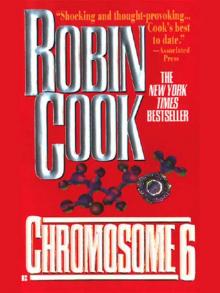 Chromosome 6
Chromosome 6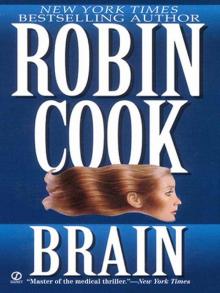 Brain
Brain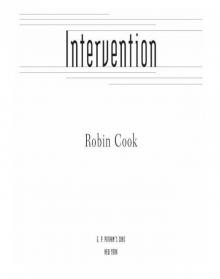 Intervention
Intervention Invasion
Invasion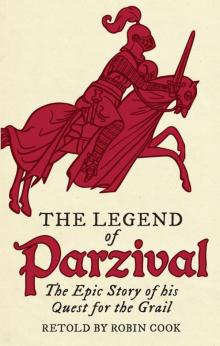 The Legend of Parzival: The Epic Story of His Quest for the Grail
The Legend of Parzival: The Epic Story of His Quest for the Grail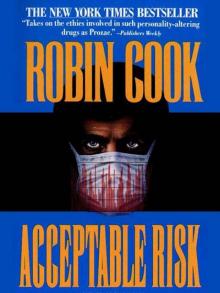 Acceptable Risk
Acceptable Risk Cell
Cell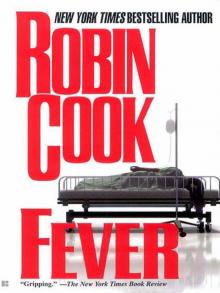 Fever
Fever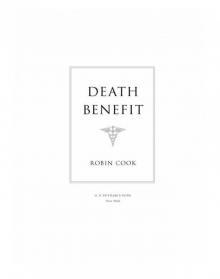 Death Benefit
Death Benefit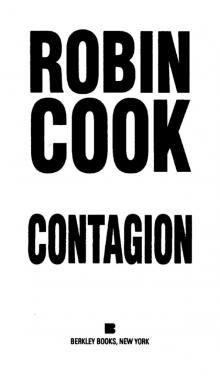 Contagion
Contagion Mindbend
Mindbend Coma
Coma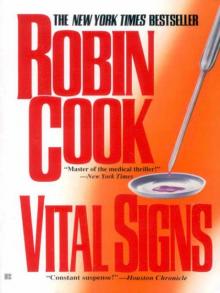 Vital Signs
Vital Signs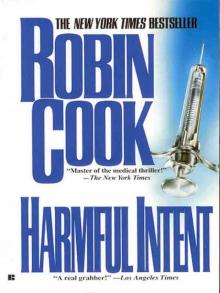 Harmful Intent
Harmful Intent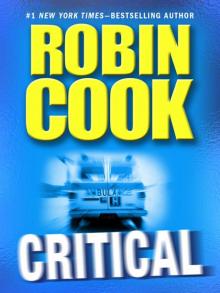 Critical
Critical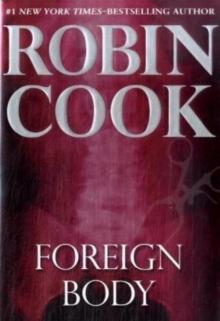 Foreign Body
Foreign Body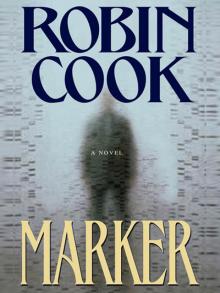 Marker
Marker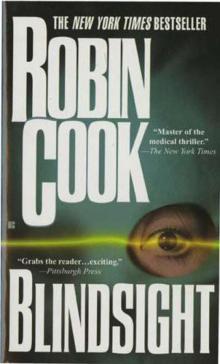 Blindsight
Blindsight Terminal
Terminal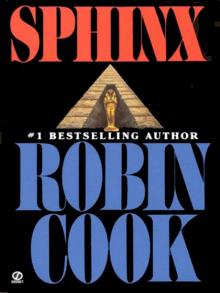 Sphinx
Sphinx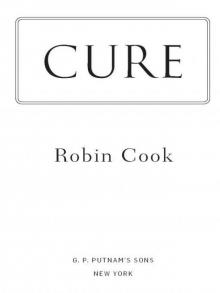 Fatal Cure
Fatal Cure Host
Host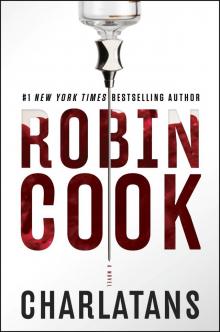 Charlatans
Charlatans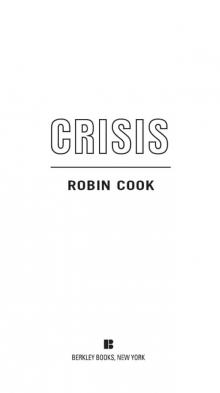 Crisis
Crisis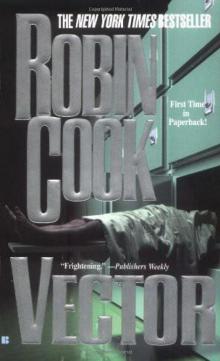 Vector
Vector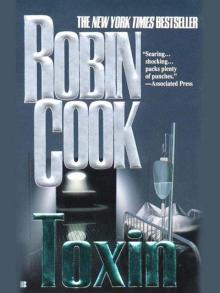 Toxin
Toxin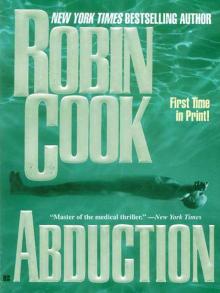 Abduction
Abduction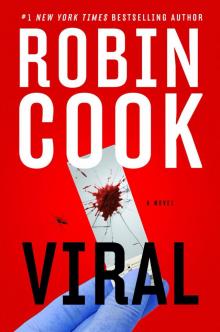 Viral
Viral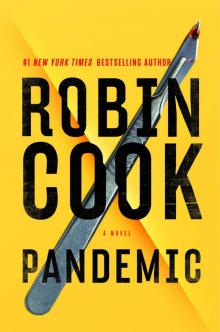 Pandemic
Pandemic Outbreak
Outbreak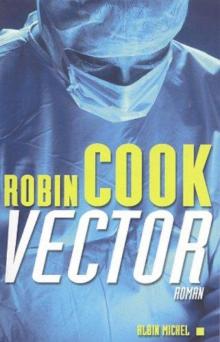 Vector js&lm-4
Vector js&lm-4 Godplayer
Godplayer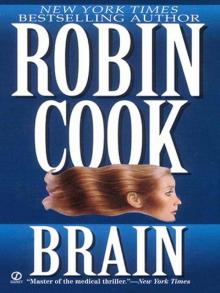 A Brain
A Brain Year of the Intern
Year of the Intern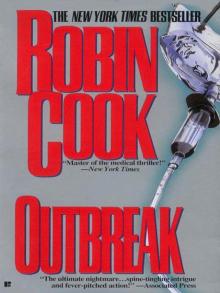 Outbreak dmb-1
Outbreak dmb-1 Cure
Cure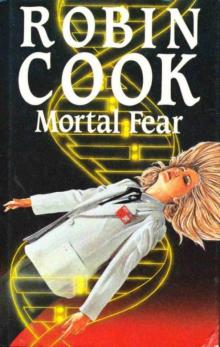 Mortal Fear
Mortal Fear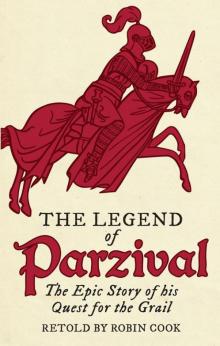 The Legend of Parzival
The Legend of Parzival Vital Signs dmb-2
Vital Signs dmb-2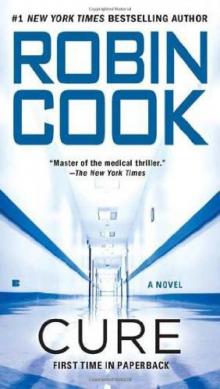 Cure (2010) sam-10
Cure (2010) sam-10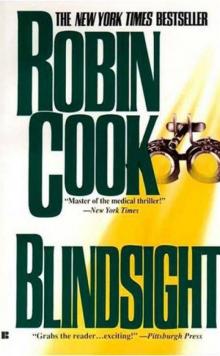 Blindsight sam-1
Blindsight sam-1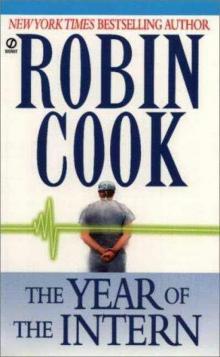 The Year of the Intern
The Year of the Intern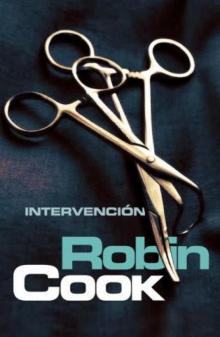 Intervention sam-9
Intervention sam-9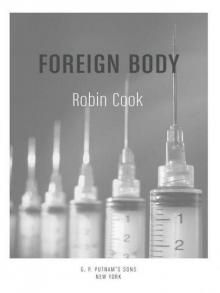 Foreign Body sam-8
Foreign Body sam-8